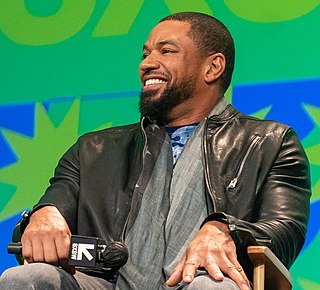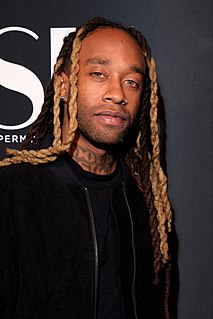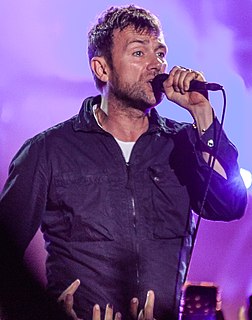A Quote by Michel Hazanavicius
I like to shoot beautiful things. My two previous movies were one in the '60s, the other one in the '50s, and this one is in the '20s. This is a period that's very cinegenic. The cars, the props, the suits, the haircuts, the dresses, everything, and it gives you pleasure to compose frames with that material. The music, I really love jazz, so for me, when you have good materials and nice things, it's very pleasant.
Related Quotes
I'm very fortunate, and the movies that I've made, even from the very beginning, have been very eclectic. The thing for me is: Am I emotionally engaged in the idea? Is there something special about it? Does it capture my imagination? So everything that I do is simply something that turns me on. And I have the good fortune to be able to make bigger movies and television that ostensibly pay for the other ones. I don't mean literally finance the movies. But they allow me to work on things for very little pay. I do these things because I love them.
I don't even know why, but my entire career is contemporary films. Entire career! There's no period movies - there's one - but there's no period movies, no special effects movies. I just do character studies and so, some of them are gonna bump into each other, but I love the challenge, with a good script. I love the challenge of playing not a very pleasant or attractive character that seduces an audience or wins an audience over by the end.
In the '60s when I started to see everything I could see, you could see pretty much everything which was still available from the '30s, '40s, '50s, '60s, and therefore I had an education which was really large and vast in different cinema. That's probably the reason I did not fall for the New Wave. It's really the love of the movies that made me want to become a cameraperson, definitely. I was really a film buff.
In the '60s and '70s it was a great period for American films because studios were still run by individuals who worked off the seat of their pants and went along with things. At that time, they were very uncertain about what to make because of the influence of television. A lot of really terrific movies were made. But then the studios gradually became more corporate and were owned by corporations and run in that way and now they're very nervous. You see what they make - sequels, franchises and try not to take risks.
I've got all of the old school vinyls from the '70s - even further back, like the jazz music in the '40s, '50s, '60s. Then I've got all the '80s stuff underground, hip-hop when hip-hop really first started. The '90s stuff. All of the good stuff, because I'm really into music, and it helps me create new songs now.
Music, to me, is the most beautiful form, and I love film because film is very related to music. It moves by you in its own rhythm. It's not like reading a book or looking at a painting. It gives you its own time frame, like music, so they are very connected for me. But music to me is the biggest inspiration. When I get depressed, or anything, I go "think of all the music I haven't even heard yet!" So, it's the one thing. Imagine the world without music. Man, just hand me a gun, will you?
Everything is just make believe. They're just different versions of make believe. I love the period of this movie [The Finest Hours]. I love the '40s. I love the '50s. I love the style of the clothes. I love how the women looked. I love the dances. I love the music. I love the amber of the lights and the cars. I'm in love with all of it.
If you need to do a movie where you have an army of 10,000 soldiers, that's a very difficult thing to shoot for real. It's very expensive, but as computer graphics techniques make that cheaper, it'll be more possible to make pictures on an epic scale, which we haven't really seen since the '50s and '60s.






































